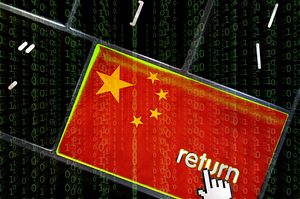Last week, as The Diplomat reported, Chinese President Xi Jinping led the first meeting of China’s Internet security and informatization leading group. The group is charged with coming up with a sensible cyber strategy for China. According to Xinhua, Xi Jinping told the cyber group that “Internet security and informatization is a major strategic issue concerning a country’s security and development as well as people’s life and work.” Following the meeting of the cyber group, Xi added some extra ambition to China’s cyber ambitions, calling for it to become a veritable “cyber power.” Xi said that “efforts should be made to build our country into a cyber power.”
There is no reason to believe that Xi’s claims aren’t sincere. China has demonstrated its interest in cyberspace both domestically and internationally, and the fact that the highest levels of CCP leadership are involved in such a group only reiterates the national commitment to developing a robust cyber capacity. Premier Li Keqiang and Liu Yunshang, First Secretary of the Central Secretariat, both serve as the deputy heads of the Internet group.
Chinese media coverage of the Internet group focused on the need to make a China a more connected country. Closing the gap between China’s urban and rural denizens necessitates expanding Internet penetration. Xinhua emphasized a need for greater indigenous innovation in information technology.
The cornerstone of the Chinese governments efforts to pursue policy ends in cyberspace is the “Great Firewall,” and related efforts to censor and constrain discourse on the Internet. Signals indicate that Xi has every intention of maintaining a robust domestic censorship architecture. He even sees the Internet as a tool for cultivating socialist values among China’s citizens.
Last year, private security firm Mandiant published its APT1 report, subtitled “Exposing One of China’s Cyber Espionage Units” that painted a convincing picture of one of the PLA’s cyber units operations out of a lone building in Shanghai. The report began with a quote from the Chinese Defense Ministry: “It is unprofessional and groundless to accuse the Chinese military of launching cyber attacks without any conclusive evidence.” Mandiant intended, of course, to provide that “conclusive evidence.” As of now, strategic planners in countries with geopolitical rivalries with China such as the United States, India, and Japan assume that cyber espionage is a routine part of China’s military portfolio and are taking steps to prevent and counter potential cyber attacks. Thus Xi’s calls for China to become a “cyber power” could raise anxieties abroad.
China has made a point of pushing the idea that it is itself a victim of cyber attacks. In line with that, Xi has urged the new Internet group to model a coherent and streamlined Chinese cyber security framework, taking inspiration from the United States’ own Framework for Improving Critical Infrastructure Cybersecurity and Japan’s Cybersecurity Strategy – both documents being relatively recent developments in their own countries. “No Internet safety means no national security. No informatization means no modernization,” Xi said after the group’s meeting.

































